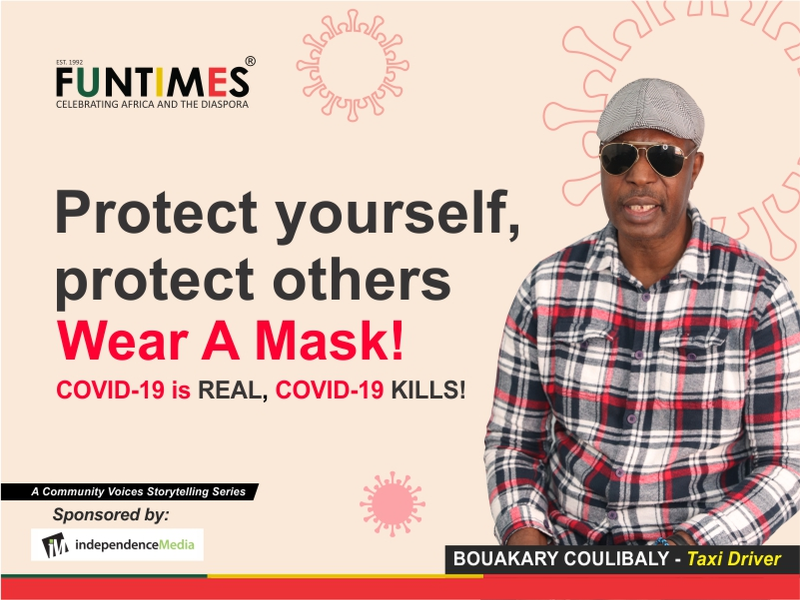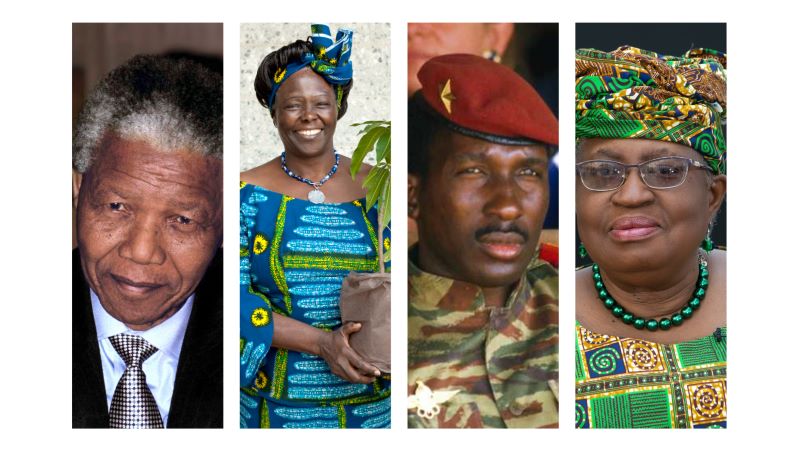‘Business as usual’ distorts as industries continue to shapeshift in response to COVID-19. The traditional taxi industry, already recovering from a major blow brought by services like Uber and Lyft, is suffering immensely during the pandemic. In 2000, Schaller Consult found that 38% of taxi drivers in the United States were immigrants. It is also a fact that immigrants, who come to the US with a number of skills, are often underemployed and therefore underpaid. Many of these already struggling families have been put in a devastating financial crisis due to COVID, and others have been forced to compromise something more valuable than money—their health and lives.
Bouakary Coulibaly has been a taxi driver in the United States for over 12 years. This entrepreneur, who hails from Ivory Coast, noted that no matter how much revenue he accrues, he must pay cab dues every week to rent a cab. This existing financial constraint means he has to work well with customers to continue cash flow. However, the pandemic has made his job of taking care of customers difficult and put his health at risk. Bouakary contracted COVID and lived to tell the tale. His testimony of struggle illustrates the urgent need to take preventive measures and highlights the necessity for more government aid and COVID relief.
In describing the nature of his work, Coulibaly says: “Everything is about communication. Being a cab driver is a bit dangerous, you just have to be careful and know who to deal with.” This job is especially high risk because it exists in a tight space. Unfortunately, this is also the reason working taxi drivers are extremely susceptible to the virus, which Coulibaly experienced firsthand.

“When COVID began, it was difficult for cab drivers because no one wanted to take a cab…It’s very dangerous for drivers and customers at the same time because no matter how much you cover your face you have to communicate with your customer… In the beginning of March, everyone stopped working as a cab driver because cab drivers were getting the disease…I myself tested positive for COVID, that’s why I stopped working.”
His journey with the virus was nothing short of a nightmare. Thankfully, Coulibaly has government insurance, and was able to be admitted to a Philadelphia hospital at 43rd and Spruce, where he spent 5 hours. He says “It was very bad because you can’t breathe and you can’t speak because you are coughing all of the time.”
Coulibaly wants communities to know how serious and dangerous this virus is. “This thing is for real. In the nighttime, it is like someone put a big rock on your chest. People need to take care of themselves with face masks, washing their hands and stuff like that.”


In calling on the government to provide better help for its citizens, Coulibaly says “90% of cab drivers are not working…Everybody needs help. Most people are out of a job, so if the government can help that will be better. ”
This experience of intensified struggle during COVID-19 has made Coulibaly even more of a soldier as well as a testament to the reality of COVID and the importance of enforcing preventive measures. At the same time, he exudes strength that inspires others to be brave like him: “I have been a victim of COVID-19 already. Since I have dealt with that, nothing has bothered me. I just take it day by day, that’s all.”

This article has been made possible by the Independence Public Media Foundation.

Photo and Video credit: Laura Elam
Citations
http://www.schallerconsult.com/taxi/taxidriversummary.htm
https://www.google.com/amp/s/mobile.reuters.com/article/amp/idUSKBN13W2JK
SMC

Nana Ama Addo is a writer, multimedia strategist, film director and storytelling artist. She couples her passion for the diaspora with art and collaboration to fuel a modern creative economy. She graduated with a BA in Africana Studies from the College of Wooster, and has studied at the University of Ghana and Kwame Nkrumah University of Science and Technology. Visit her storytelling brand at www.asieduasimprint.blog. Connect with her creative agency on Instagram: @chitheagency.





